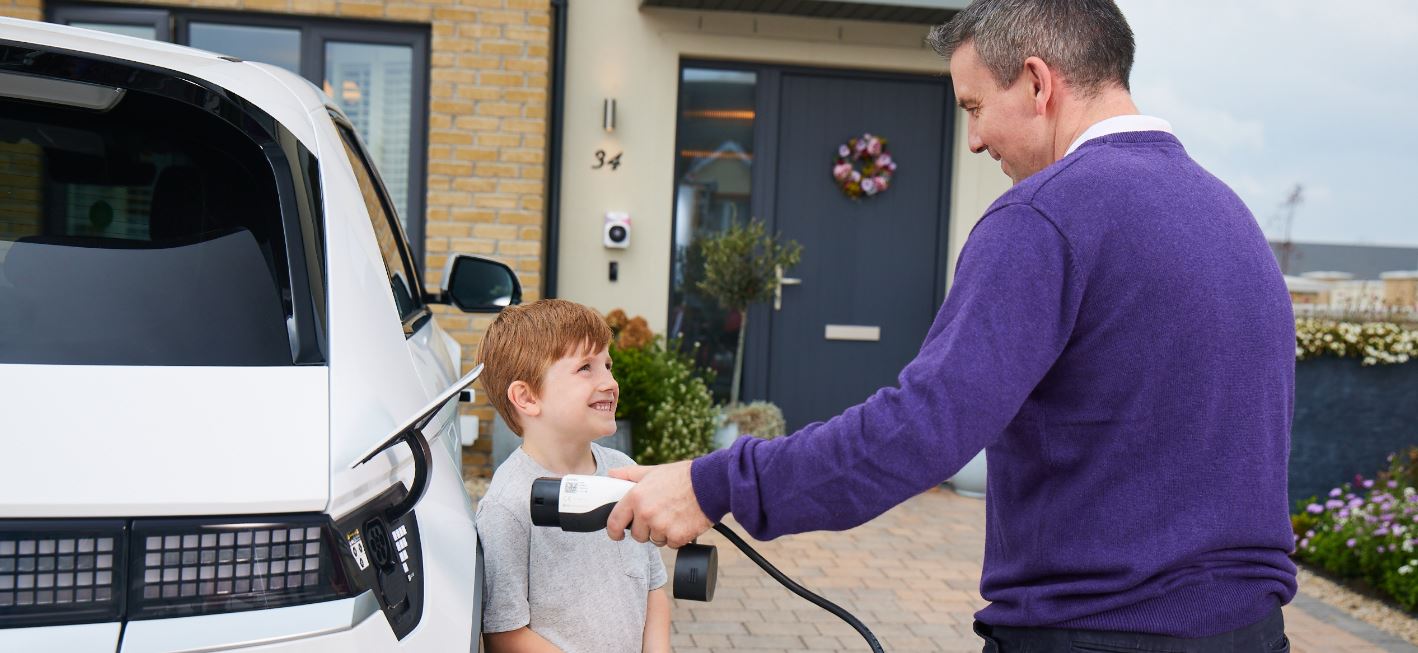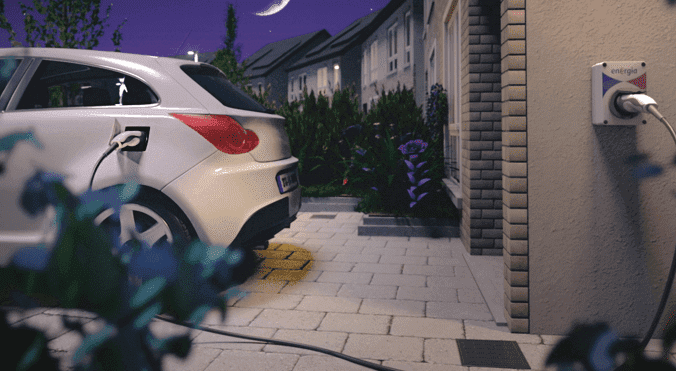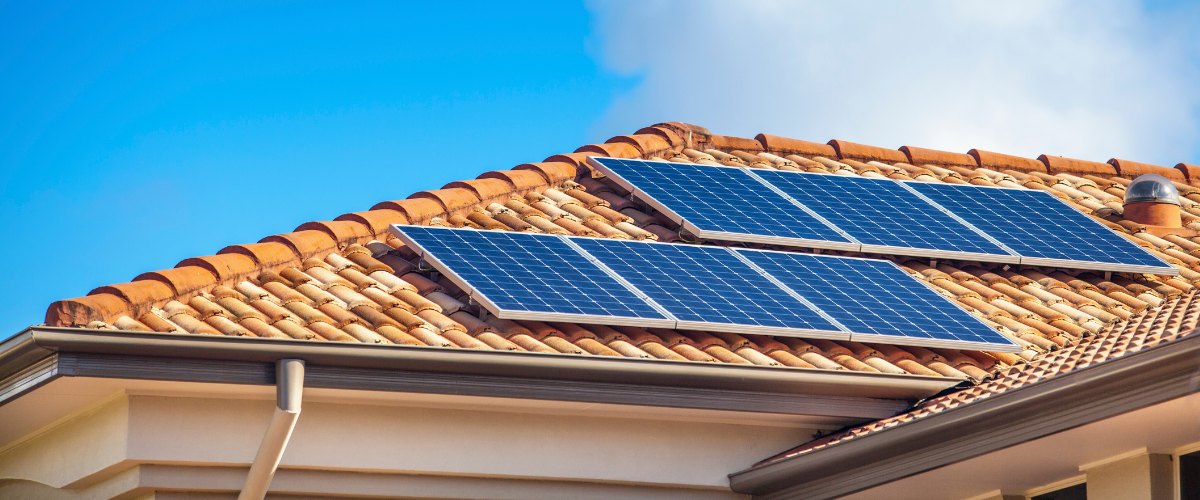Electric Vehicle Buyers Guide
Based on reviews of EV vehicles by EV Review lreland popularity for these cars are increasing each year. Therefore understanding what’s involved in making the switch to an electric vehicle is essential. This guide will help you navigate the process of choosing, owning, and maintaining an electric vehicle in Ireland, as well as the incentives available to make the transition easier.
Why choose an electric vehicle?
It doesn't come as a surprise to know about the various benefits of electric vehicles. They play a crucial role in reducing carbon emissions and improving air quality. EVs also come with lower running costs and advanced technologies, making them a smart and sustainable choice. By choosing an electric vehicle, you’re contributing to Ireland’s goals of halving emissions by 2030 and reaching net zero by 2050, while enjoying a cleaner, quieter drive.
Different types of electric vehicles
It’s important to understand the different types of electric vehicles (EVs) before making your purchase. Each type offers unique advantages and caters to various driving needs and preferences. In our electric vehicle buyers guide, we shall explore the various types of EVs available in Ireland, helping you determine which one will best suit your lifestyle. Whether you are looking for a fully electric experience or a hybrid vehicle, there’s an EV option that can meet your needs.
Battery electric vehicles (BEVs)
Battery Electric Vehicles (BEVs) are fully electric and have no internal combustion engine. They run solely on electricity stored in their batteries, which are recharged via an electric power source. EV batteries typically last 8 years and are built to have a long lifespan. BEVs produce zero emissions and are eligible for various incentives, making them an eco-friendly choice.
Plug-in hybrid electric vehicles (PHEVs)
Plug-in Hybrid Electric Vehicles (PHEVs) combine an electric motor with a traditional petrol or diesel engine. They can be charged from home or a charging station and typically offer a limited electric-only range before switching to hybrid mode. PHEVs offer flexibility and can be a great choice for those who need the option of a longer driving range while still benefiting from electric power.
Benefits of switching to electric
Making the switch to an electric vehicle (EV) brings numerous advantages, both for individual drivers and the broader environment. As Ireland pushes towards more sustainable living, understanding these benefits can help you make an informed decision. From reducing your carbon footprint to enjoying significant cost savings, electric vehicles offer a compelling alternative to traditional petrol and diesel cars. With Energia Smart EV plan you have everything you need tailored to suit your needs.
Let's explore the key benefits of electric cars:
Environmental impact
Switching to an electric vehicle (EV) significantly reduces your carbon footprint. EVs produce zero tailpipe emissions, helping to lower greenhouse gas emissions and improve air quality. Switching to an electric car allows you to significantly lower your carbon footprint, contributing directly to a more sustainable future.
Lower running costs
Electric vehicles are much cheaper to run compared to traditional petrol or diesel cars. Electricity is cheaper than fuel, and electric vehicles (EVs) have fewer moving parts, so they need less maintenance and are cheaper to repair. Plus, in Ireland, EV owners pay lower motor taxes and can get various government incentives, which makes owning an EV even more affordable. All these savings add up over time, making electric vehicles a smart financial choice.
Costs associated with owning an electric car
Owning an electric car in Ireland involves various costs beyond just the purchase price. Understanding these costs can help you make an informed decision before making the switch.
Let’s take a closer look at the key financial aspects associated with owning an EV:
Electric Cars Purchase Price
Electric cars often have a higher upfront cost compared to traditional petrol or diesel vehicles. This is primarily due to the cost of the advanced battery technology used in EVs. But the higher initial price is offset by the long-term savings on fuel and maintenance. The government offers grants and incentives to help reduce the purchase price of electric vehicles, making them more affordable for buyers. If you're looking for an electric car, Energia offers a range of home charging EV offers with many of Ireland’s top manufacturers, including Opel, Hyundai, Honda, Kia, and Citroën.
Government incentives and tax credits
To encourage the switch to electric vehicles, the government provides several incentives and tax credits. These can include grants for purchasing new EVs, reductions in Vehicle Registration Tax (VRT), and lower motor tax rates. In addition to government incentives, at Energia we currently offer a Free EV home charger as well as competitive rates on renewable electricity. These incentives help to lower the overall cost of buying and owning an electric car, making it a more financially attractive option for many drivers.
Insurance cost of an Electric Car
Insurance for electric vehicles can sometimes be more expensive than for conventional cars, due to factors such as the higher repair costs and the perceived risk associated with new technology. But this cost varies depending on the model of the vehicle, the insurance provider, and your driving history. Some insurers are beginning to offer discounts for EV drivers, and as electric cars become more common, insurance costs may become more competitive.
Range anxiety
Range anxiety is a common concern among potential electric vehicle (EV) buyers. It refers to the fear that an EV might run out of power before reaching a charging station. There's nothing to worry about for the most part, as advancements in EV technology and an expanding charging infrastructure are making range anxiety less of an issue. There are useful trip planning applications such as our EV charger map – Zapmap, which helps drivers plan their journey.
Understanding electric car range
Electric car range varies depending on the model, battery size, driving conditions, and driving habits. EVs typically offer a range between 200 to 400 kilometers on a full charge, with some high-end models exceeding 500 kilometers.
Factors that affect the range include:
- Battery Size: Larger batteries store more energy, providing a longer range.
- Driving Conditions: Extreme temperatures and hilly environments can reduce the range.
- Driving Habits: Aggressive driving, high speeds, and heavy use of climate control systems can also impact range.
Understanding these factors can help you choose an EV that meets your daily driving needs and lifestyle.
Tips for managing range anxiety
Managing range anxiety involves planning. Here are some tips to help you overcome range anxiety:
- Plan Your Trips: Before heading on long journeys, plan your route and identify charging stations along the way. Apps and websites can help you find nearby chargers.
- Monitor Your Battery: Keep an eye on your battery level and estimated range. Most EVs have built-in navigation systems that can calculate the remaining range based on current driving conditions.
- Use Public Charging Stations: Familiarise yourself with the locations of public charging stations in your area and on your usual routes. Many stations offer fast charging options to quickly top up your battery.
- Improve Driving Habits: Drive at moderate speeds, use regenerative braking, and minimise the use of energy-consuming features like air conditioning and heating to maximise your range.
- Install a Home Charger: Having a home charging station ensures that your EV is fully charged each morning, reducing the need to find charging points during the day.
- Stay Updated: The number of charging stations is continually growing in Ireland. Stay informed about new installations in your area and in other counties.
Charging options
The great thing about electric cars is that you have multiple options for charging them. Whether you’re at home or on the go, having access to reliable and accessible charging options can significantly improve your EV experience.
Let’s take closer look at the primary charging options available:
Home charging stations
Let’s be honest, home charging stations are one of the most convenient options. Installing a home charger allows you to charge your car overnight, ensuring it's ready for use each day. If you're planning on installing a charging station in your home follow our ev charger installation guide that answer some common queries. Various grants and incentives are available to help offset the cost of installing a home charging point. A typical home charger can fully charge an EV in several hours, depending on the battery size and charger speed. For those who drive regularly and have a designated parking space, a home charging station offers a cost-effective and efficient way to keep your EV charged. The Smart Drive Energia EV Plan offers lower overnight rates, which can significantly reduce your EV charging costs, especially if you charge regularly between 2am and 6am.
Public charging stations
Public EV charging points are essential for longer journeys or for those who do not have access to home charging facilities. There are currently 1,350 charging stations in Ireland. These stations are strategically located across Ireland, across major cities like Dublin and Galway, shopping centres, and petrol stations, making it easier to charge your EV while on the go. EV chargers come in various types, including fast chargers and ultra-fast chargers, which can significantly reduce charging time. Many public charging facilities operate on a pay-as-you-go basis, and some require a membership or an app for access. Knowing where to find and how to use public charging stations can help ensure a smooth and hassle-free driving experience with your EV.
Maintenance considerations
Maintaining an electric vehicle is generally simpler than a traditional combustion engine car due to fewer moving parts and less complex systems. But there are still some key maintenance areas to be aware of to ensure your EV remains in top condition.
Regular maintenance requirements
As mentioned previously, electric vehicles require less frequent maintenance compared to traditional cars, but they still need attention to keep them running smoothly. Key maintenance tasks include checking tyre pressure to improve efficiency and safety, as well as periodically analysing the brake pads and fluid, even though EVs use regenerative braking. It's also important to monitor and top up coolant levels, as EVs have cooling systems for both the motor and battery. Also check that the wiper blades are in good condition and that all lights are functioning properly for maximum safety.
Battery maintenance and replacement
The battery is one of the most critical components of an electric vehicle. Here’s everything you need to know about its maintenance and replacement:
- Battery Care: To extend battery life, avoid letting it discharge completely and try to keep it between 20% and 80% charge. Follow recommended charging practices to avoid overcharging or draining your battery too much.
- Battery Replacement: EV batteries are designed to last many years, often 8-10 years or more, but they may eventually need replacement. You can check your battery's health using your car’s onboard diagnostics. Many car manufacturers also offer warranties that cover battery replacement if needed.
- Environmental Impact: When the time comes to replace the battery, it’s important to recycle the old one properly. Many manufacturers and dealers have take-back programs to handle used batteries.
Incentives for electric vehicle buyers
Switching to an electric vehicle (EV) in Ireland is not only a step towards a greener future but also comes with several financial incentives. These incentives can significantly reduce the cost of purchasing an electric car and everything that comes with it.
Government incentives and rebates
There are several government incentives designed to make buying an electric car more affordable. These include grants and rebates that can reduce the initial cost of an EV. For example, the SEAI (Sustainable Energy Authority of Ireland) offers a grant of up to €3,500 for battery-powered electric vehicles (BEV). This grant amount depends on the vehicle's price and emissions category. Buyers of electric vehicles can benefit from reductions in Vehicle Registration Tax (VRT) and lower motor tax rates, which decreases the overall cost. These incentives are part of Ireland's effort to promote sustainable future.
Charging infrastructure incentives
There are incentives available for installing home chargers. The Electric Vehicle Home Charger Grant provides up to €300 towards the cost of purchasing and installing a home charging point. This grant aims to make home charging more accessible and affordable for EV owners. To qualify, the charging station must be installed by a registered electrician, and the installation must be at an off-street location associated with the home. If you're a new or existing Energia customer, you can enjoy a FREE* home charger point and a competitive rate on renewable electricity.
Efforts are ongoing to expand public charging infrastructure across the country. This includes funding for new charging stations in various locations. These incentives ensure you have convenient and cost-effective options to keep your EV experience enjoyable.
*Free Home EV Charger: You will need to pay €300 upfront for your charger installation and if eligible, you will receive a €300 grant from SEAI to cover a standard charger installation See details of the SEAI EV Home Charger Grant at www.seai.ie.



